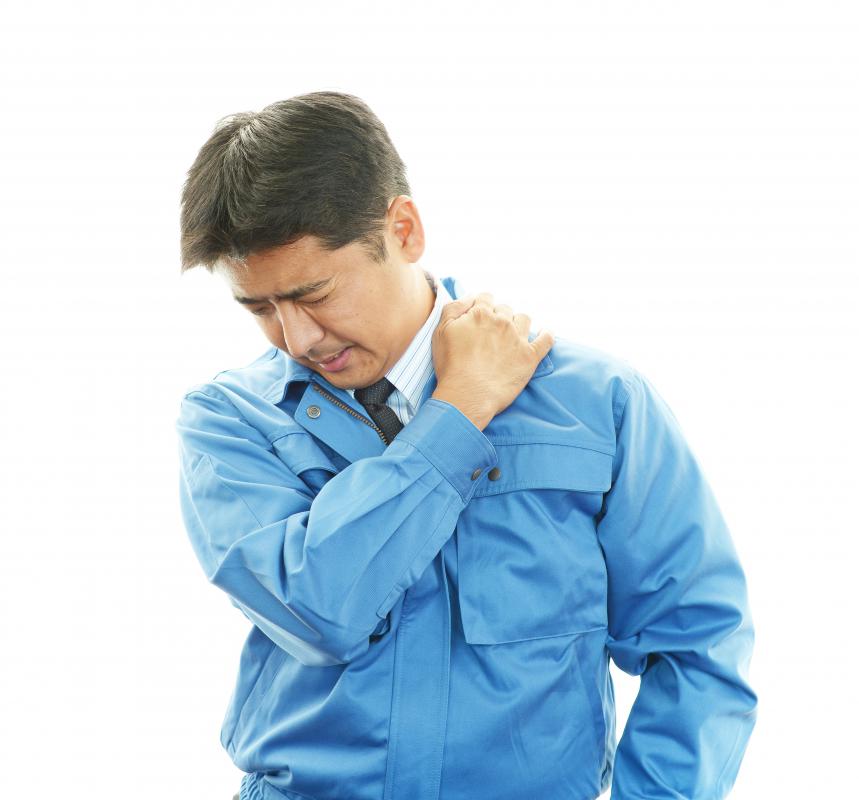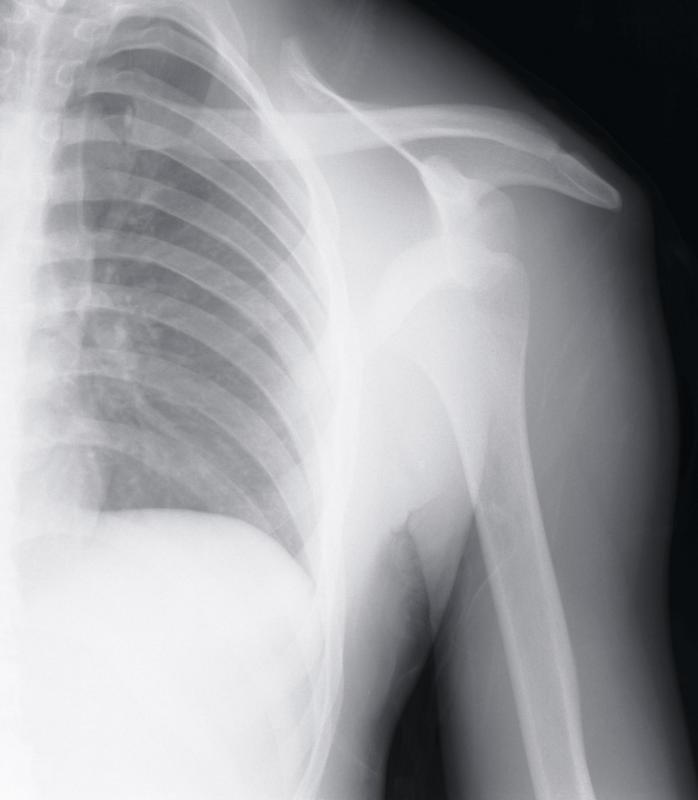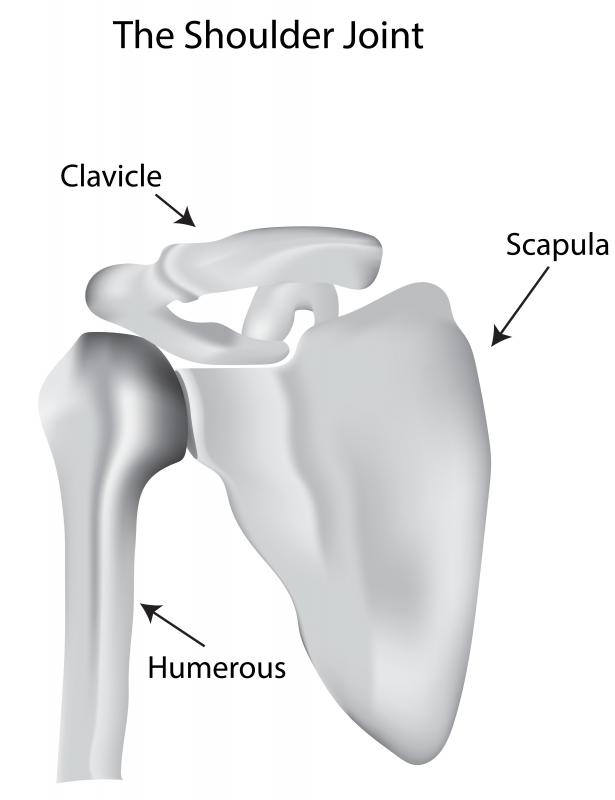At WiseGEEK, we're committed to delivering accurate, trustworthy information. Our expert-authored content is rigorously fact-checked and sourced from credible authorities. Discover how we uphold the highest standards in providing you with reliable knowledge.
What are Symptoms of a Strained Rotator Cuff?
The rotator cuff is the group of muscles and tendons that surround the shoulder joint, enabling it to move. If the shoulder area is frequently subjected to repetitive movements or is suddenly jarred, its muscles can be overstretched or even torn. This type of injury, common among athletes and those whose jobs require heavy arm use, is known as a strained rotator cuff. There are several symptoms that can indicate a strained rotator cuff. Learning to identify these symptoms — and seeking appropriate treatment for them — can help avert painful, lingering shoulder injuries.
Symptoms can vary depending upon the severity of the strain and whether it is chronic or acute. Chronic strains usually develop gradually, and often occur when the bones in the shoulder area grind or rub against the rotator cuff. Individuals with this type of strain usually experience pain in the area that is mild at first but increases over time. They may find this pain prevents them from sleeping comfortably. As the strain worsens, they may have difficulty raising their arms above their head, and in severe cases may struggle to move the affected shoulder at all.

A strained rotator cuff injury that is acute usually results from a sudden impact to or movement of the area, such as a fall or, in sports, a hard throw. Sufferers of this type of injury may experience a painful tearing sensation at the moment of impact or movement. This pain will likely continue for several days, with particular soreness at the site of the strain. Depending on the severity of the injury, individuals may be able to use the affected shoulder partially or may be totally unable to move it.

Those experiencing only mild strained rotator cuff symptoms can attempt to treat the injury at home. Applying ice to the area and taking over-the-counter pain medication can help ease discomfort. Restraining the arm in a sling can allow the affected muscles to rest and recuperate.
Severely strained rotator cuffs can progress into long-term injuries if left untreated. Thus, those whose symptoms persist for more than five days or whose pain is unbearable should seek medical attention. A physician may administer diagnostic tests like x-rays or ultrasounds to verify that the patient’s rotator cuff discomfort is indeed caused by a strain. Once a strain has been confirmed, the physician may advise steroid injections, physical therapy, or, in the case of seriously damaged muscles, surgery.
AS FEATURED ON:
AS FEATURED ON:


















Discussion Comments
One of the things you can do to help prevent this is to stretch out and strengthen your rotator cuff area so that it is less prone to injury. That can help prevent what they call a "frozen shoulder" which is when the area gets bad enough that you basically can't move it.
One of the easier stretches targeting those muscles is to straighten your arm and move it across the front of your body, with your other arm to hold it. You should feel a stretch in your shoulder when you do this.
@umbra21 - Well, one of the other treatments they can do before going to surgery is to try a steroid injection in the area to take care of the pain and inflammation.
Often the severe pain is caused because the swollen muscles shift the bone slightly so it is grinding against them all the time. The injection doesn't solve the problem, but it makes it easier to do the stretches and exercises that can help in the long term.
Of course, if your mother has a serious injury, like a tear, rather than just a rotator cuff strain, then she probably is going to need surgery.
You absolutely don't want this kind of injury. My mother has been suffering from a rotator cuff injury for almost a year now and it never seems to really go away.
Because she's got a pacemaker they can't do a proper exam with an imaging device to see whether she's got a rotator tear or what's going on, but they are trying to treat it without surgery for now.
And she sometimes doubles over with the pain, it gets so bad. She also finds it very difficult to sleep.
Basically, all they've done is send her to a physiotherapist who is trying stretches and acupuncture. But, so far it doesn't seem to be working.
Post your comments